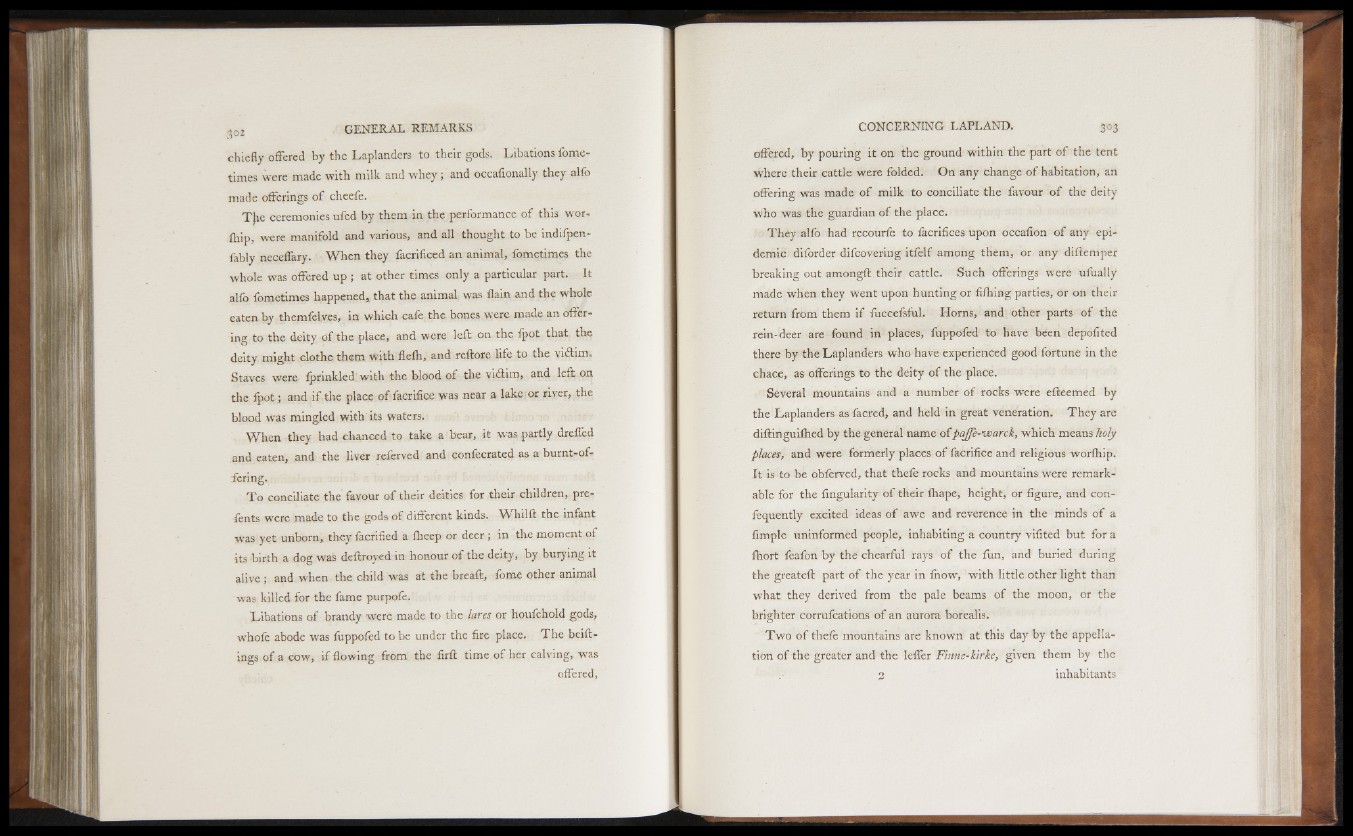
chiefly offered by the Laplanders to their gods. Libations fome-
times were made with milk and whey; and occafionally they alfo
made offerings of cheefe.
The ceremonies ufed by them in the performance of this wor-
iliip, were manifold and various, and all thought to be indifpen-
fably neceffary. W hen they facrificed an animal, fornetimes the
whole was offered up ; at other times only a particular part. It
alfo fornetimes happened, that the animal was flain and the whole
eaten by themfelves, in which cafe the bones were made an offering
to the deity of the place, and were left on the fpot that the
deity might clothe them with flefh, and reftore life to the victim.
Staves were fpriakled with the blood of the viitiro, and left on
the fp o t; and if the place of facrifice was near a lake or river, the
blood was mingled with its waters.
When they had chanced to take a bear, it was partly dreifed
and eaten, and the liver referved and confecrated as a burnt-of-
fering.
To conciliate the favour of their deities for their children, presents
were made to the gods of different kinds. Whilft the infant
was yet unborn, they facrified a fheep or deer ; in the moment of
its birth a dog was deftroyed in honour of the deity, by burying it
alive ; and when the child was at the breaft, feme other animal
was killed for the fame putpofe.
Libations of brandy were made to the lares or houfehold gods,
whofe abode was fuppofed to be under the fire place. T h e beift-
ings of a cow, if flowing from the firft time of her calving, was
offered,
offered, by pouring it on the ground within the part of the tent
where their cattle were folded. On any change of habitation, an
offering was made of milk to conciliate the favour o f the deity
who was the guardian o f the place.
They alfo had recourfe to iacrifices upon occafion of any epidemic
diforder difcovering itfelf among them, or any diftemper
breaking out amongft their cattle. Such offerings were ufually
made when they went upon hunting or fifhing parties, or on their
return from them if iuccefsful. Horns, and other parts of the
rein-deer are found in places, fuppofed to have been depofited
there by the Laplanders who have experienced good fortune in the
chace, as offerings to the deity of the place.
Several mountains and a number of rocks were efteemed by
the Laplanders as iacred, and held in great veneration. They are
diftinguiihed by the general name o fpajfe-warck, which means holy
places, and were formerly places of facrifice and religious worihip.
It is to be obferved, that thefe rocks and mountains were remarkable
for the Angularity of their ihape, height, or figure, and con-
fequently excited ideas of awe and reverence in the minds of a
fimple uninformed people, inhabiting a country vifited but for a
fhort feafon by the chearful rays of the fun, and buried during
the greateft part o f the year in fiiow, with little other light than
what they derived from the pale beams of the moon, or the
brighter corrufcations of an aurora borealis.
Two of thefe mountains are known at this day by the appellation
of the greater and the leffer Finns-lirie, given them by the
2 inhabitants